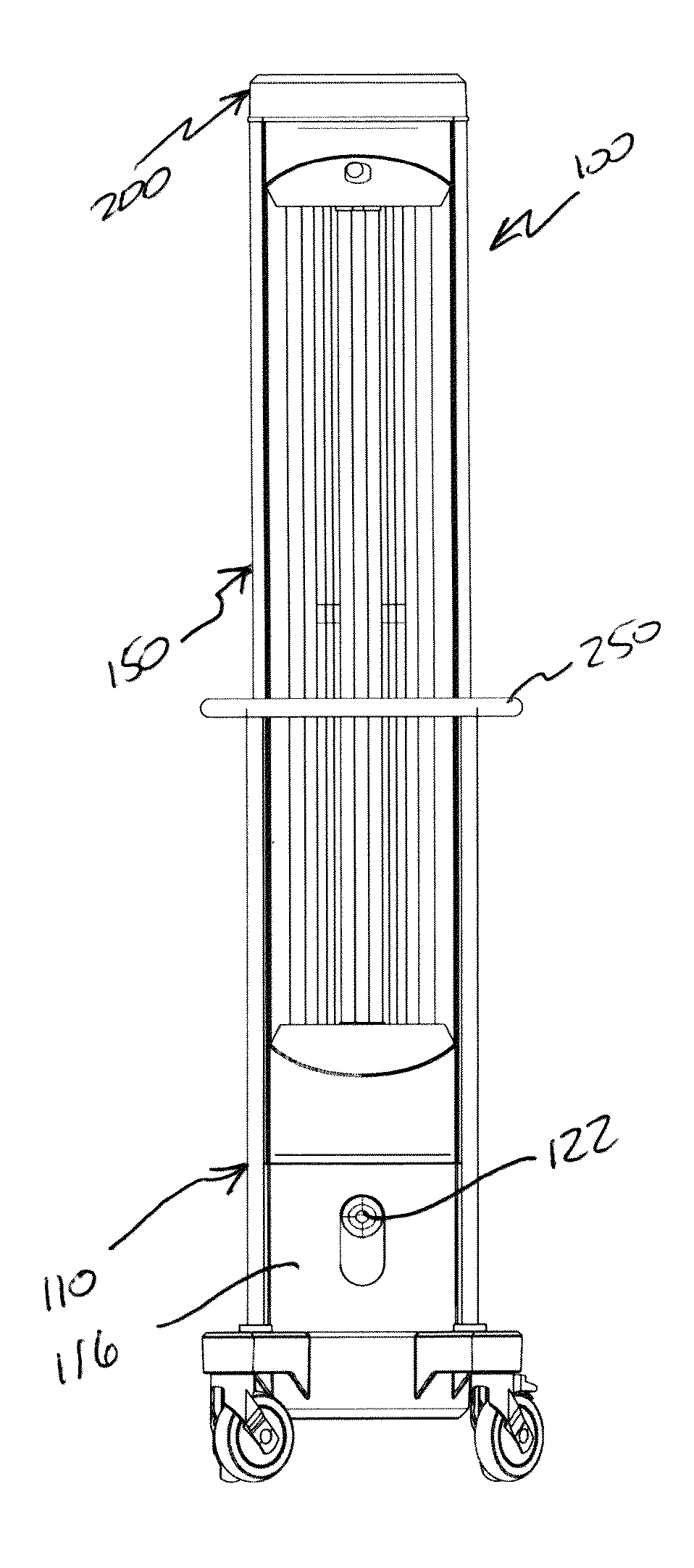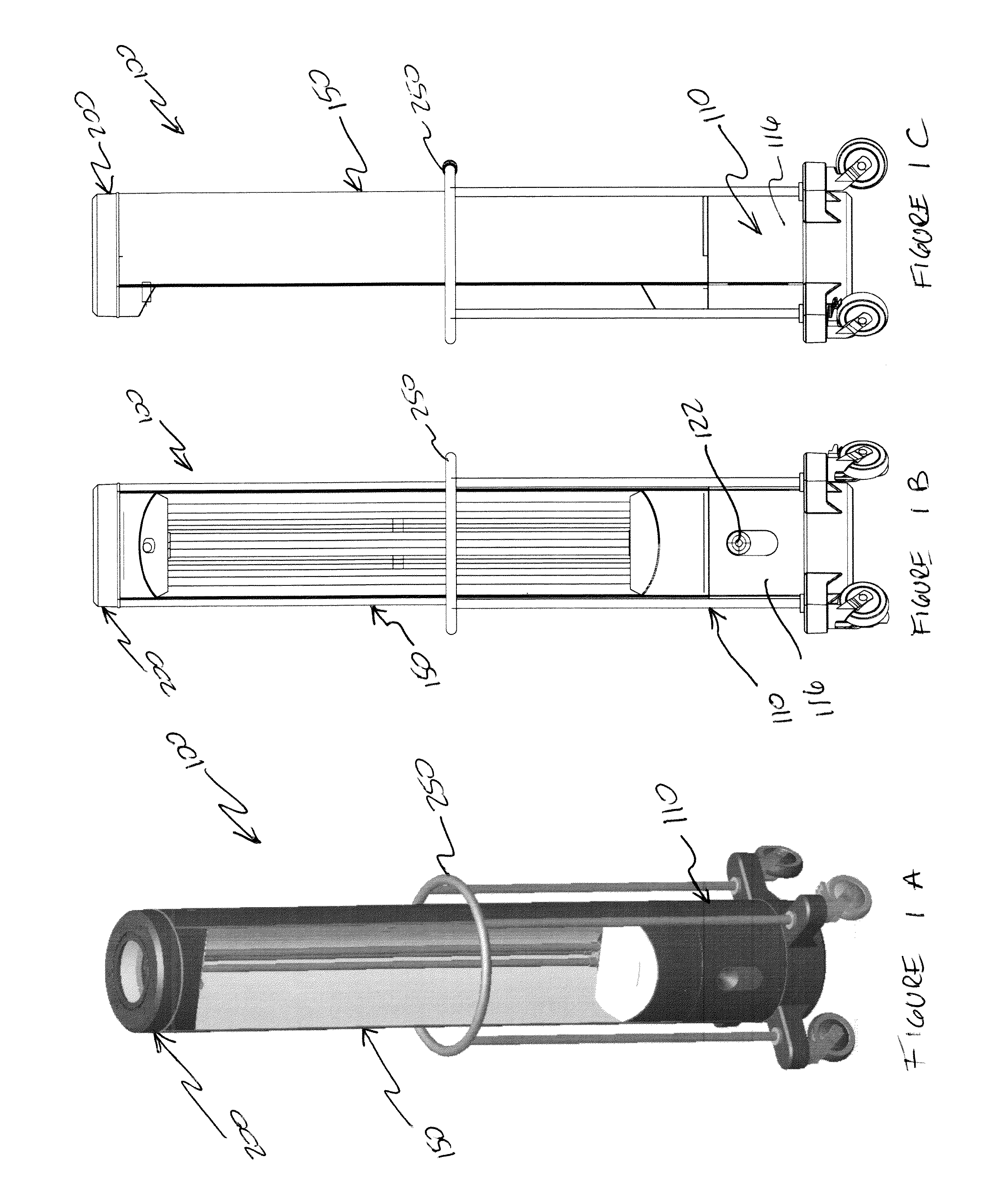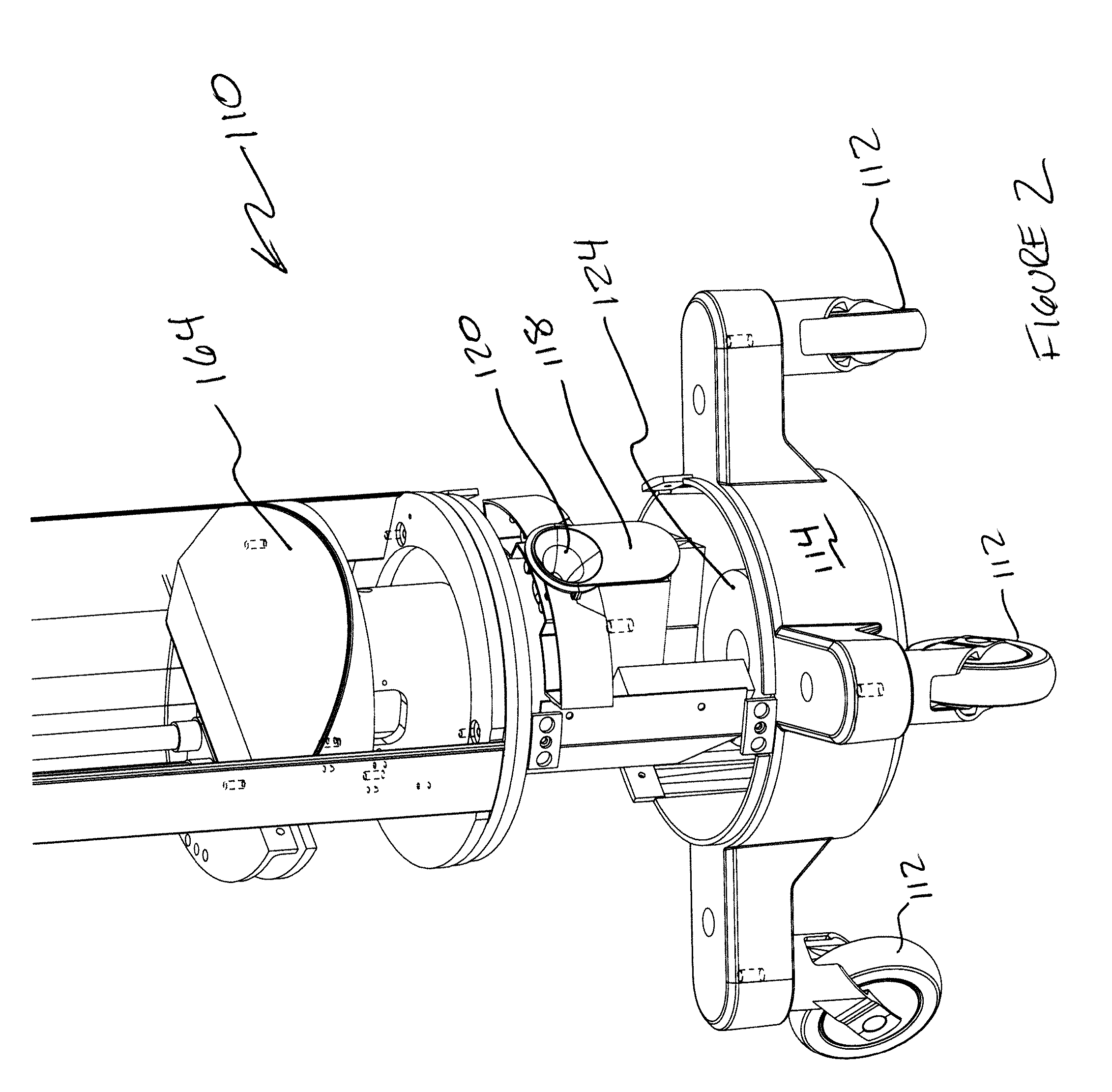Hard surface disinfection system and method
a disinfection system and hard surface technology, applied in the direction of material analysis, instruments, and treatment using wave/particle radiation, can solve the problems of significant threat to the transmission of infectious diseases and associated mortality, greater than 50% of patient room surfaces are not effectively cleaned and/or disinfected, and achieve the effect of disinfecting the hard surface in the room and minimizing the number of missed areas
- Summary
- Abstract
- Description
- Claims
- Application Information
AI Technical Summary
Benefits of technology
Problems solved by technology
Method used
Image
Examples
Embodiment Construction
[0050]Specific embodiments of the invention will now be described with reference to the accompanying drawings. This invention may, however, be embodied in many different forms and should not be construed as limited to the embodiments set forth herein; rather, these embodiments are provided so that this disclosure will be thorough and complete, and will fully convey the scope of the invention to those skilled in the art. The terminology used in the detailed description of the embodiments illustrated in the accompanying drawings is not intended to be limiting of the invention. In the drawings, like numbers refer to like elements.
[0051]Referring now to FIGS. 1a-c, there is shown an embodiment of a device 100 of the invention. Device 100 is a light tower that generally includes a base assembly 110, a lamp assembly 150, a cap assembly 200, and a hand rail 250. The device 100 is configured for use with a computer application for controlling one or more devices. The application is download...
PUM
| Property | Measurement | Unit |
|---|---|---|
| area | aaaaa | aaaaa |
| energy | aaaaa | aaaaa |
| distances | aaaaa | aaaaa |
Abstract
Description
Claims
Application Information
 Login to View More
Login to View More - R&D
- Intellectual Property
- Life Sciences
- Materials
- Tech Scout
- Unparalleled Data Quality
- Higher Quality Content
- 60% Fewer Hallucinations
Browse by: Latest US Patents, China's latest patents, Technical Efficacy Thesaurus, Application Domain, Technology Topic, Popular Technical Reports.
© 2025 PatSnap. All rights reserved.Legal|Privacy policy|Modern Slavery Act Transparency Statement|Sitemap|About US| Contact US: help@patsnap.com



